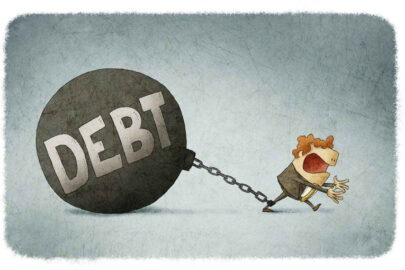New research from StepChange Debt Charity has revealed that people who had experienced a life event in the last two years were three times as likely to be in problem debt than those who had not.
The research found that around 23 million people have experienced a life shock in their household in the past two years.
The charity said there was a need for a radical overhaul of protection mechanisms against life events.
StepChange’s new report marks the first stage of a major project designed to unpick the nature of the financial coping mechanisms that people try to use when unexpected life events happen, understand why they are not necessarily effective in helping people avoid problem debt, and constructively identify what needs to change.
StepChange CEO Phil Andrew said: “This research really brings home the reality that most debt problems are triggered because of unexpected events in people’s lives. For individuals these are unpredictable, even though within society as a whole we know that such events are common.
“Dealing as we do with over 600,000 people a year facing financial problems, what we see being played out time and time again is that current mechanisms are just not proving effective in keeping people out of financial harm when life events do happen to them.
“The scale of the problem demands a coordinated approach. We know that many people, even those who are in work, are finding it hard to build up any level of protection against these common life shocks. We need policymakers to prioritise this issue and we want to work with them, and others, to identify how support can be improved to break the link between life shocks and problem debt.”
Currently three million people are in problem debt in Great Britain, with another 9.8 million showing signs of financial distress. In 2018, seven in every 10 people who came to StepChange for advice said the primary reason they had got into problem debt was because of a life event or shock.
The charity said that identifying “what works” in helping people cope after a life shock should therefore be a policy priority.
StepChange believes there are “gaping holes in protection” and that to build financial resilience requires a rethink of mechanisms to protect against and manage the financial consequences of life events such as birth, death, relationship breakdown, illness, caring responsibilities and fluctuating employment. A YouGov survey finds that not only did just one life event increase the likelihood of being in debt, but also that the more life events people experienced, the more likely they were to be in debt.
